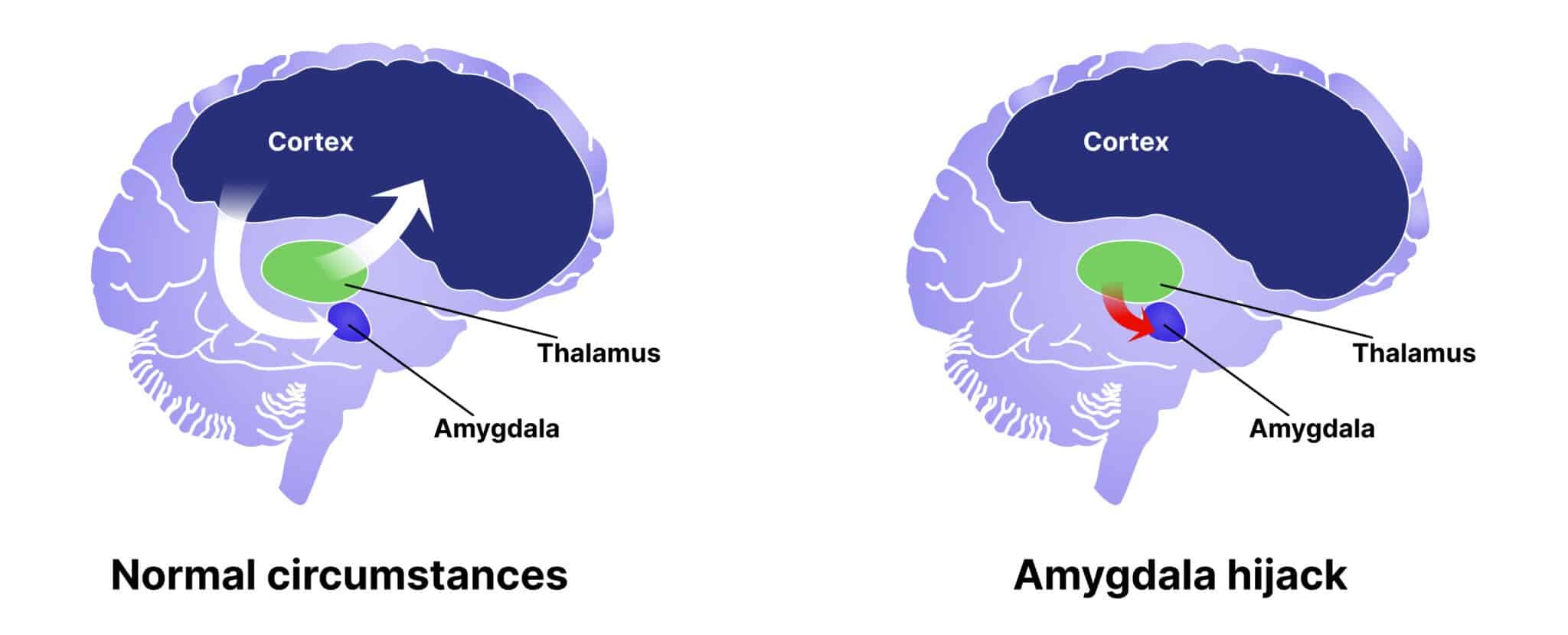How Childhood Trauma Affects the Brain—And What You Can Do to Heal
We tend to think of trauma as something that happened back then. But for many, the effects of early stress are still echoing through the body and brain—shaping how we think, feel, and function today.
If you’ve ever felt chronically anxious, foggy, scattered, or emotionally drained—even after trying to eat right, sleep more, or meditate—it might be time to ask, what has my nervous system been through?
That story often starts with something called ACEs—Adverse Childhood Experiences.
These include things like emotional neglect, parental separation, abuse, or growing up in a home with addiction or mental illness. Over 60% of adults have experienced at least one ACE, and more than 1 in 5 have experienced three or more [Keator et al., 2024].
And the truth is, they don’t just affect how we feel. They shape how the brain works—and how our entire body responds to stress, even decades later.
How Early Stress Rewrites the Brain’s Blueprint
A 2024 brain imaging study of over 7,000 adults found that the more ACEs someone had, the more their brain function changed—especially in areas tied to focus, motivation, emotion, and identity [Keator et al., 2024].
1. The Brain’s Alarm System: Always On
When you grow up with chronic stress, your brain’s internal alarm—designed to protect you—can get stuck on high. This often feels like being constantly on edge, bracing for something to go wrong, even when life is calm.
Although the study didn’t directly image the amygdala, other research confirms that it plays a key role—often becoming hyperactive and enlarged in those with ACEs [Hosseini-Kamkar et al., 2023] [Evans et al., 2016].
It’s like your brain’s smoke alarm goes off every time someone lights a candle.
2. Focus and Motivation: Running on Empty
The brain regions that help you plan, stay focused, and follow through—like the caudate, putamen, and cerebellum—were less active in people with more ACEs.
This can show up as brain fog, fatigue, or feeling stuck no matter how hard you try to push through.
It’s like trying to drive with your foot on the gas—but no fuel in the tank.
3. Self-Narrative and Reflection: Critical or Confused
The default mode network—your brain’s “storytelling” system—includes areas like the posterior cingulate and angular gyrus, which help shape memory, identity, and self-reflection.
In people with high ACE scores, this network becomes disrupted, often leading to rumination, low self-worth, and difficulty feeling clear or grounded.
It’s like your inner narrator gets stuck on repeat—telling stories of worry, doubt, or shame.
Could These Patterns Be Driving Your Symptoms?
If you’ve experienced
Brain fog or forgetfulness
Wired but tired
Mood swings or overreactions
Gut issues or hormone changes that seem random
Trouble focusing or getting started on tasks
… it may not just be stress or aging—it could be your nervous system stuck in survival mode.
These aren’t personality flaws. They’re adaptations. Your brain did what it had to do to protect you.
Want to Know Your ACE Score?
Take the official 10-question ACE quiz developed by the CDC and Kaiser Permanente: ACE Questionnaire
This quiz helps you better understand your score—and remember, it’s not a diagnosis. It’s a tool to better understand how your nervous system may have adapted to early stress.
A 4-Step Plan to Start Healing Your Mind and Body
The brain is adaptable—it can build new patterns with the right support. Just as trauma rewired it in one direction, healing can help reroute it in another.
1. Calm the Stress Response
Adaptogenic herbs like ashwagandha, rhodiola, ginseng, and holy basil help support your stress hormones and ease your body out of fight-or-flight.
2. Rebuild Brain Chemistry
With targeted amino acids, B vitamins, and gut support, we restore the balance of brain messengers like serotonin, dopamine, and GABA—key for mood, energy, and focus.
3. Reset the Body’s “Brake Pedal”
The vagus nerve is your body’s built-in calming system. We use breathwork, mindfulness, cold therapy, acupuncture, and other therapies to activate it and support nervous system regulation.
4. Rewrite the Internal Story
Understanding that your symptoms aren’t “you” but your nervous system’s survival strategy allows for self-compassion—and that’s one of the most powerful medicines I know.
You’re not broken. You adapted. Now you get to rewrite your story.
Want to Learn More About Trauma and the Brain?
One of the most powerful books I recommend to understand trauma's effects on the brain and body is The Body Keeps the Score by Dr. Bessel van der Kolk.
This book explores how trauma gets stored in the nervous system and how healing is possible through body-based therapies, neuroscience, and integrative approaches.
You Deserve to Feel Clear, Calm, and Connected
Healing from ACEs isn’t about reliving every old memory. It’s about creating new experiences of safety in the present—so your brain and body can finally exhale.
In my practice, I combine trauma-informed care, functional lab testing, and integrative medicine to help you reconnect with your body and rebuild the clarity, focus, and resilience you deserve.
Book Your Brain Health Consult
A free 15-minute call to explore your health goals and see if we’re a good fit.







